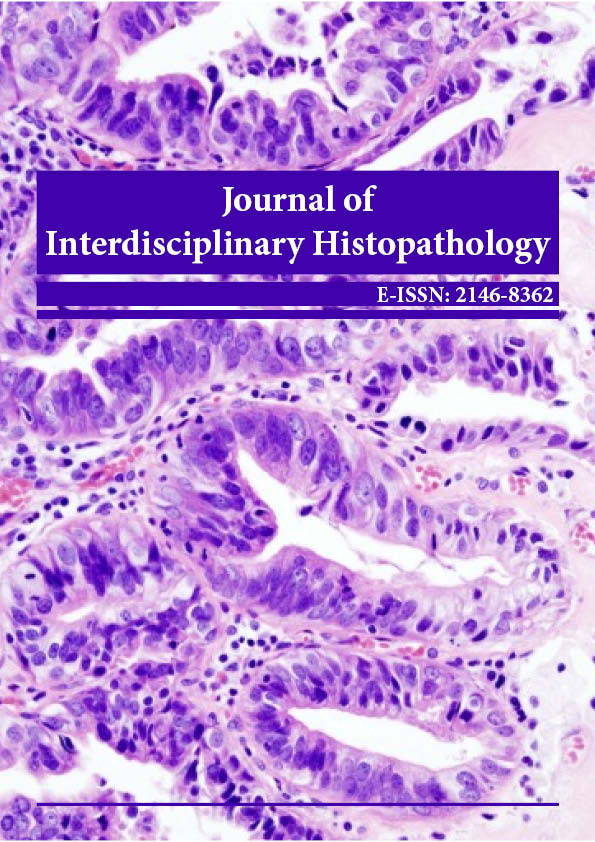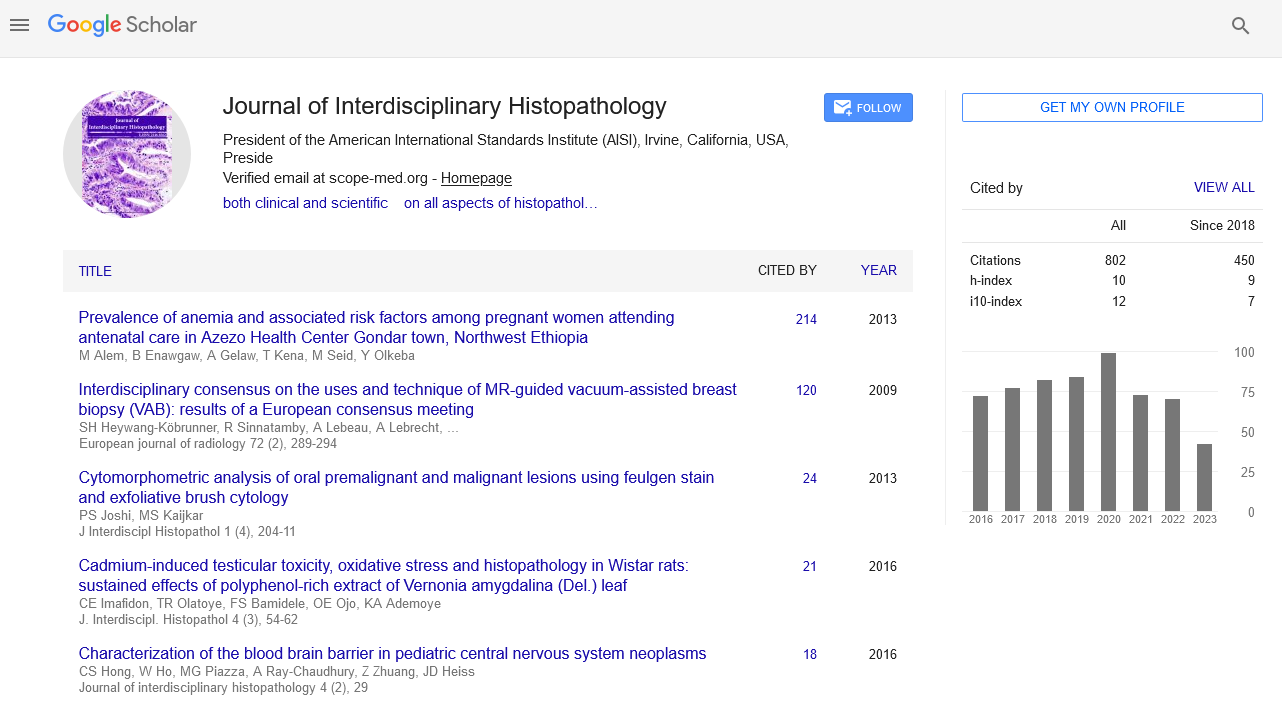The effect of antigen retrieval buffers on MALDI mass spectrometry imaging of peptide profiles in skin FFPE tissue
Abstract
Pumza S. Magangane, Nonhlanhla P. Khumalo, Henry A. Adeola
Objective: The success of novel in situ Immunohistoproteomic approaches that employ matrix-assisted laser desorption and ionization mass spectrometry imaging (MALDI-MSI) heavily depends on good antigen retrieval efficacy. Methods: We have optimized the effect of various antigen retrieval buffers on peptide profiles acquired from formalin-fixed paraffin-embedded traction alopecia scalp tissue. Heat-induced epitope retrieval (HIER) was performed using citrate, Tris, and Tris-EDTA buffers under various conditions. MALDI-MSI analysis of the tissue was performed using a high-throughput, state-of-the-art RapiFlex MALDI TOF/TOF tissue-typer equipped with a smart beam laser. Results: Background matrix peaks were found under most conditions except under Tris-EDTA buffer. Trypsin digestion periods longer than overnight and possibly higher concentrations are needed for citrate and Tris. The Tris-EDTA buffer performed best for MALDI-MSI antigen retrieval at an incubation period of overnight at 60°C. Conclusions: We have identified in this study that antigen retrieval conditions need to be optimized prior to the MALDI-MSI analysis of different tissue types.
PDF





